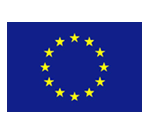Please note that the main parts of the RESPONDER knowledge base are only accessible for registered users. To gain access, please register or login.
| Background papers |
Videos |

(500 kB) |
What is Sustainable Consumption?
Although it is an enigmatic concept, sustainable consumption has become an increasingly important topic on political agendas. At its core, the concept calls for consumption patterns that conserve natural resources and ensure quality of life today without impairing the needs of future generations. |

 Gerd Scholl - What is sustainable consumption about? Gerd Scholl - What is sustainable consumption about?
|

 Inge Røpke - How is sustainable consumption linked to economic growth? Inge Røpke - How is sustainable consumption linked to economic growth?
|

(1.3 MB) |
Why do we need economic growth?
Although increasingly put under scrutiny in the public and scientific arenas, economic growth – an increase in Gross Domestic Product (GDP) – presents the main policy objective in most countries. Economic growth is seen as key to address the social goals of full employment, poverty reduction and human wellbeing. As major social institutions (such as pension, health and education systems as well as labour markets) build on economic growth for proper functioning, it seems eventually necessary to sustain economic stability. |

(483 kB) |
Why is economic growth questioned?
For more than 35 years the “beyond-growth community” has been pointing out that unlimited economic growth is not possible on a planet with limited resources and that it jeopardises human well-being in the long term. |

 Joan Martinez Alier - How can policy makers be motivated to participate in a beyond growth debate? Joan Martinez Alier - How can policy makers be motivated to participate in a beyond growth debate?
|

 Francois Schneider - What does De-Growth mean? Francois Schneider - What does De-Growth mean?
|

(736 kB) |
Why does RESPONDER use systems mapping for knowledge brokerage?
A deep understanding of the complex issues of economic growth and sustainable consumption requires a systemic approach: RESPONDER uses the method of participatory systems mapping to conduct knowledge brokerage. Researchers and policy makers can contribute by attending RESPONDER knowledge brokerage events and registering to the RESPONDER community. |

 Nuno Videira - What is a system map and what are the benefits of system mapping? Nuno Videira - What is a system map and what are the benefits of system mapping?
|

(688 kB) |
Rio+20: Sustainable consumption and production and the growth debate in the outcome document “The Future We Want”
Although frustration and pessimism have been voiced immediately after the UN Conference on Sustainable Development (Rio+20), referring to the summit even as a complete failure, the number of optimistic and pragmatic voices calling against belittling the invested effort and months of negotiations among 192 countries is on the rise. With this in mind, we observe and analyse the role of sustainable consumption and production (SCP) and of the growth debate in the UNCSD outcome document “The Future We Want”. |
















